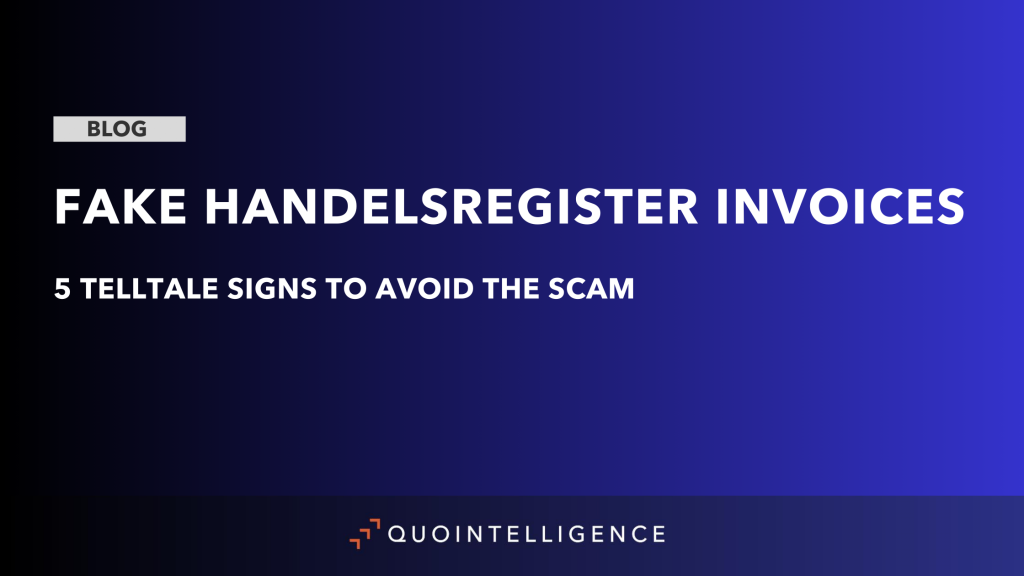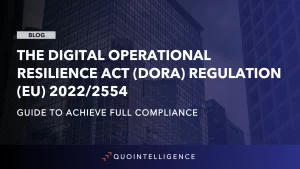A new scam is successfully targeting companies that recently updated their information in the Handelsregister. Although convincing, these fake ‘Register Court’ invoices have telltale signs you can spot to avoid becoming a victim.
In recent days a new scam has been successfully targeting companies that have recently made updates to their information in the Handelsregister (the commercial register of German businesses).
Posing as a German ‘Register Court’, scammers are sending fake Handelsregister invoices intending to trick businesses into paying for those changes.
However, although these invoices may seem convincing, there are warning signs that can help you recognize and avoid becoming a victim of this intricate scam.
Furthermore, understanding the characteristics of this scam and learning how to protect your business from it is not just advisable — it’s imperative.
Fake Handelsregister Invoices — the Key Warning Signs
- Missing Sender Address and Contact Details
Legitimate official documents always include sender information, such as address and contact details. It’s important to exercise caution when dealing with invoices that do not provide these elements. - Unclear or Incomplete Payee Information
Authentic documents always provide information about the individual or organization that should receive the payments. If the recipient is mentioned vaguely using terms such, as ” register” without accurate details, it is advisable to be suspicious right away. - Excessive Amounts
If the amount requested is significantly higher than usual, it is a potential red flag for fraud. Always verify the authenticity of the request through independent contact with the service provider or company’s verified channels. - BIC Leading to Prepaid Credit Card Account
A significant warning sign is if the Bank Identifier Code (BIC) provided directs you to a credit card account. This is not typical of official registries or court accounts. - Extremely Short Payment Terms
Pay attention to situations that put pressure on considered decision making. For example, a very short due date in an unexpected message might be an indicator of criminal intention. If the invoice demands payment within an extremely short period, like three days, this is often a tactic to pressure businesses into paying without verification. Official entities usually offer a more reasonable timeframe for payments. But scammers want their victims to stop their critical thinking so that they rush into making a payment.
4 Things You Can Do and The Four-Eyes Principle
To safeguard your company from falling prey to such scams, we recommend implementing — and very importantly maintaining — appropriate precautions.
- Always independently confirm unexpected communication from supposed official entities
You should only rely on contact information from trusted, verified sources. - When dealing with invoices thoroughly examine each detail
Particularly when they involve unusually large sums of money or demand tight payment deadlines. - Remember that authentic invoices from genuine channels always provide payee information along with contact details
- In any case of doubt, it can be as well to contact the court or registry directly using their official contact information
And verify the legitimacy of any invoices or communications before making any payments.
The Four-Eyes Principle
Remember the Four-Eyes-principle for financial transactions above a certain threshold:
- Examine: Carefully review all details of a transaction
- Yield: Consider the return on investment or the benefits of the transaction
- Ensure: Make sure all legal and compliance checks are in place
- Secure: Protect the transaction and related information from fraud or theft
Conclusion
The recent wave of fake Handelsregister invoices falsely representing the German ‘Register Court’ is a significant threat to businesses.
This has led many companies to raise awareness among their teams to proactively avoid the scam.
Therefore, it’s crucial for businesses to exercise diligence in verifying the authenticity of such documents. Protecting your business from such malicious campaigns requires vigilance, careful verification of invoices, and prompt response to any “red flags”.
Keep up to date
To keep up with the latest cyber and geopolitical threats, subscribe to QuoIntelligence’s Weekly Intelligence Newsletter, published every Thursday around 1900 CET.





